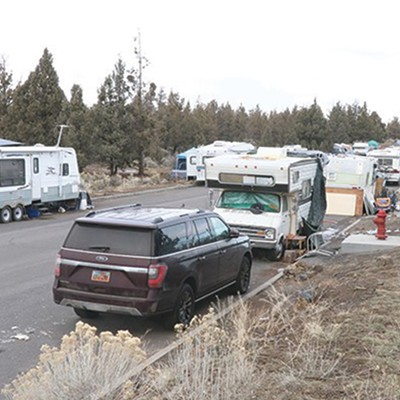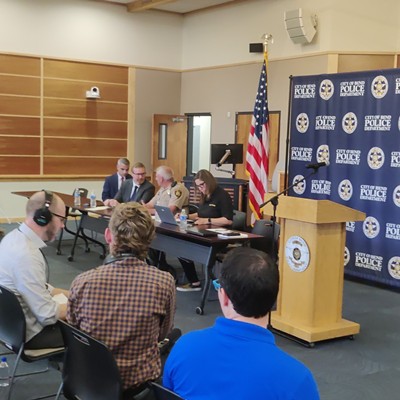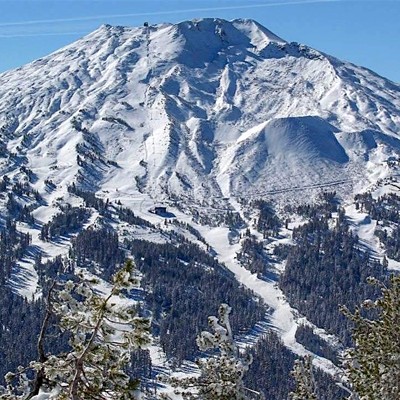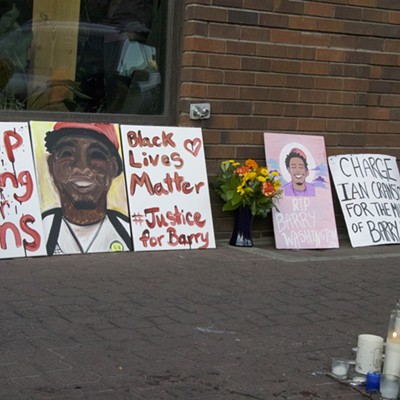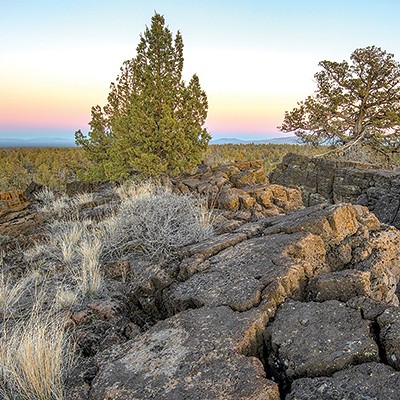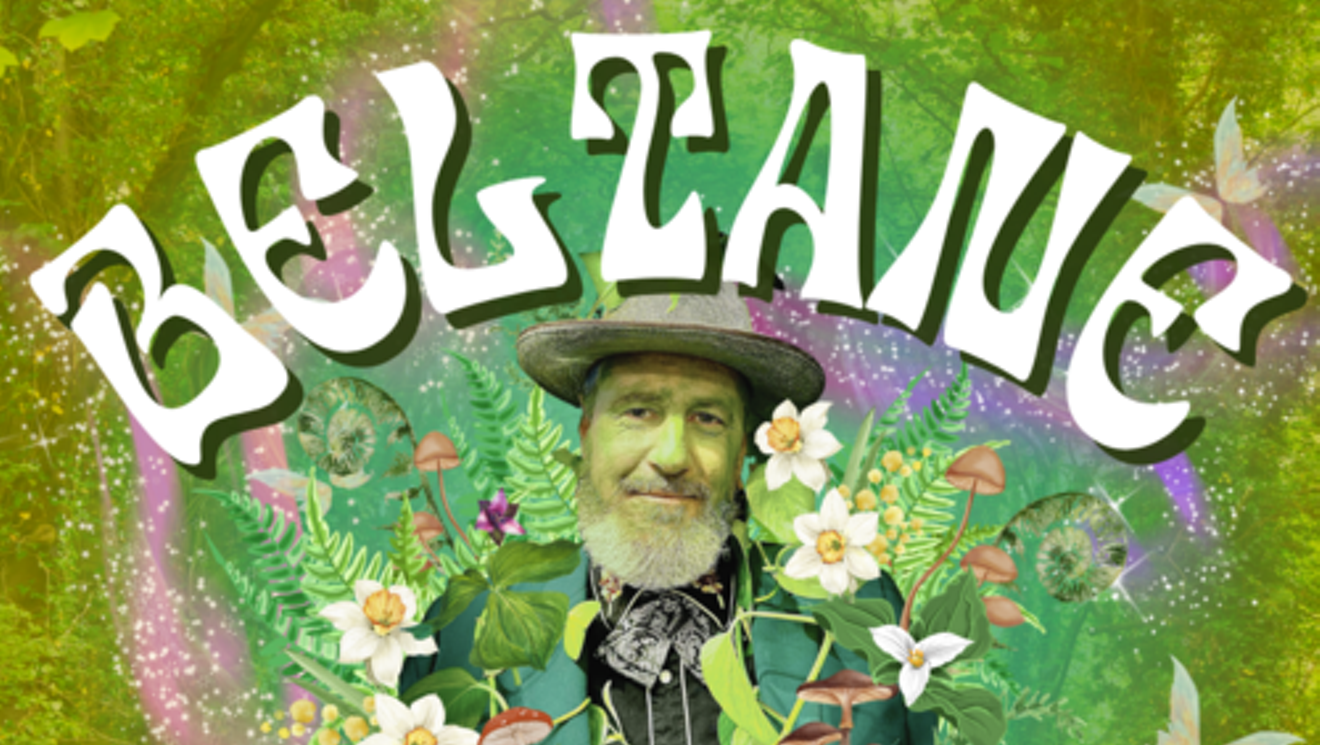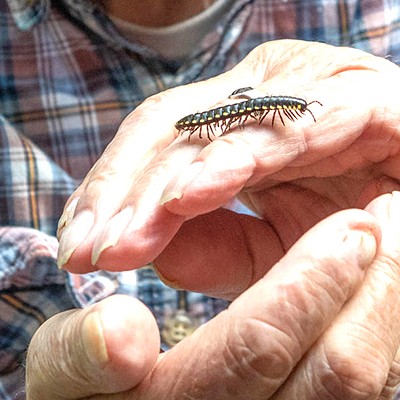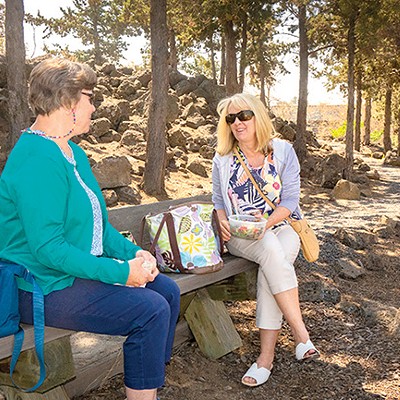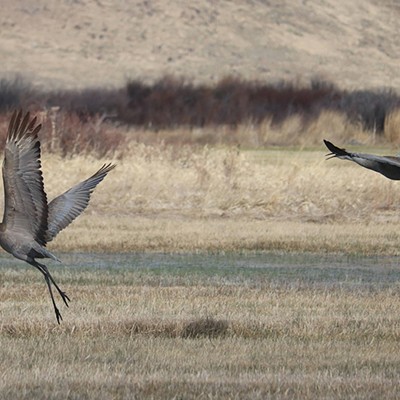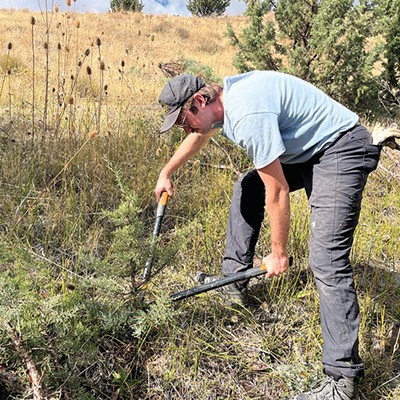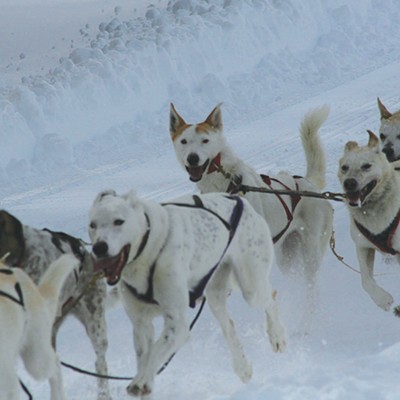Well, I'm headed for 92 years on this good earth, gettin' ready to take the Big Field Trip out among the stars. One of the things I'm most grateful for are the hundreds and hundreds of good times (and friends) I've enjoyed as a naturalist, especially the years I spent with the Oregon Museum of Science & Industry.
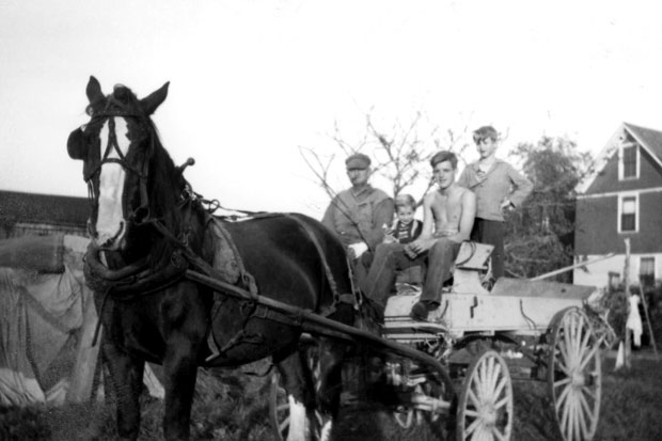
When I was a kid, one of the things I always wanted to do was teach, ever since the delightful times I had with Miss Fogerty, who taught 7th grade at Colonial Park School in West Haven, Conn. She set the standard.
She passed me on to the 8th grade—but with the provision that I come to her house every Thursday afternoon all summer where she took me under her wing and tried to get math into my head. That got me as far as geometry, but I got bucked off there and could never get back on.
If you have a child struggling with math and want to make sweet music out of learning how to work with numbers, take up learning how to play the piano. My piano teacher, Donna Moyer of Sisters, has demonstrated that the piano is a delightful math-learning tool that keeps your brain going and puts music into your life at the same time.
I can remember during the Great Depression, my dad —a trucker —saying to my mom, "Mother, I can't make enough money working for the WPA. You and the kids go back to your mom and dad's farm; I'm going out and find a job that pays well." And I didn't see him again for several years. In addition to my mom being my mom, she also played the piano, and singing with her playing became family entertainment.
On my grandfather's sprawling farm in West Haven I had the great fortune to meet life head-on. My grandfather was a postman who often returned with homeless people who stayed with us, moving them into a tiny hired man's house on the farm.
They'd eat with us and sing with us. Then, when they got their feet back under them, they'd leave, making room for the next person. One evening grandpa came home with a very small, very old African American.
Once, when we were all singing around the piano he came up to me, all excited.
"Ah' know a song," he exclaimed, "Can I sing it?" I can still sing that song that beautiful old man shared with us.
I also learned a great deal about biology and hard work while milking cows, shoveling manure, hauling hay and plucking chickens. There was the supper I never ate when my Uncle Ben came running into the house, shouting, "Catsfur! Ya Gotta' see this!" and dragged me away from the dining room table and over to Hubbard's Woods to view two skeletons he'd found, locked in mortal combat.
One was a weasel; the other a Great Horned Owl lying on top of a stone wall fence, the dead owl still holding the dead weasel locked in its talons. Apparently, the owl had landed on the old stone wall to eat the weasel, but the weasel wasn't dead, and it somehow managed to kill the owl. However, even death will not release a bird's grip on something, and there they were for me to witness.
For over 10 years, Alspaugh's Pond—located at the back-end of the farm — was my living textbook for everything that swam, crawled and flew. Years later, every time I'd take a bunch of kids on an OMSI field trip to introduce them to the nature of life around them, those old days came back.
As I grew and got older my curiosity grew, and I was continually asking my three uncles, "What's this or that for," actually pronounced, "fur." The answer more often than not was, "Catsfur," so that became my nickname.
My nature investigations involved being so hard on school shoes that my dad told me (often) that if I ruined the new pair he'd just given me—as I did all the others—he would never buy me another pair of shoes. My grandfather felt the same way.
I did just that in less than a week, chasing turtles, salamanders and frogs. The lectures about personal responsibility were severe and hammered home with a whack on my bottom. I took up trapping skunks to make enough money for my next pair of shoes—another adventure...
After four years in the Navy —in September of 1951, I rolled into Bend on my Harley. I eventually had the privilege of living with Dean and Lily Hollinshead on Timberlane Ranch, located on George A. Jones Road, on what is now the site of a beautiful public garden named after the Hollinsheads.
Like any new kid on the block, I did a lot of odd jobs to make a living. The best was working as a powder monkey for Bill Miller on his pumice mines west of Bend. The William E. Miller Elementary School is on that property today, named for Bill, one of the finest human beings I ever worked with/for.
There's an owl nest in a tree behind the school that I saved when Daryl Stevenson and I were blasting the welded volcanic ash on top of the pumice. The school called me when they first opened and asked about an owl harassing the students trying to use the playground behind the school.
Talk about emotional baggage; all the time I was checking out that nest, talking to the students about the natural history of owls, I was trying not to weep, remembering when I told Daryl we couldn't blast that day because of the presence of that nest and its occupants.
Not too long after I started working for Bill, I found lots of volcanic artifacts that I was curious about. That's when I met another hero in my life, Phil Brogan, a graduate of the University of Oregon school of geology, and writer.
He became my mentor and slowly coaxed me into writing. His persistence took me from one assignment to another, until one Sunday he asked if I would like to go to OMSI's Camp Hancock with him where he was slated to give the, "Sermon on Red Hill" — a geology talk for geologists of all ages, sitting on a cinder cone.
That was the day all my feelings and abilities in understanding and teaching of the intricate world of nature came to focus. The students at Camp Hancock were living it, and OMSI was spreading the word. Thanks to Phil, my next eight years would be with OMSI, and running the Children's Zoo.
Well, those OMSI days are also loaded with so many natural history adventures that took me along the road of science education and teaching, they'd take me days to share them, but I put a lot of them in my book, "Tales From A Northwest Naturalist." Hint, hint...

